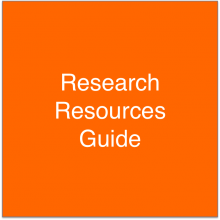This guide contains some tips and resourses that can be used for doing research online.
Where can we research online?
Google (http://www.google.com)
Try to use keywords, not questions
If you want to get more specific in your search, you can try special operators, such as “”.
- Ex: “Taylor Swift” instead of Taylor Swift (this will only give you results on Taylor Swift, instead of including pages that just have the words “Taylor” and “Swift” somewhere on there)
Google Scholar (http://www.scholar.google.com)
- If you really like an article you found, click on “Cited by...” to see other research that has used that same article! That other research is probably related to your topic.
Wikipedia (http://www.wikipedia.com)
Use Wikipedia to get an overview/summary of your research topic.
Look at the references in an article to do more research.
Library of Congress: Ask a Librarian (http://www.loc.gov/rr/askalib/)
- If you need help, you can email a librarian who specializes in your topic, and they can help you find what you’re looking for. Librarians will respond to your email within 5 business days.
Twitter (https://twitter.com/search-advanced)
- To find tweets near you about a particular topic, use Twitter Advanced Search to put in your location and the keywords/#hashtags you’re interested in.
FB Public Status Search (http://openstatussearch.com)
- To find public FB posts about a topic, use this search engine.
Google Blog Search (http://www.google.com/blogsearch)
- This search engine only looks at blogs, but because of the way it works, Blog Search finds new posts much faster than normal search engines.
Addict-o-matic (http://addictomatic.com)
- To search Flickr, YouTube, Twitter, and several different news sites at the same time, use Addict-o-matic.
Categories
Text Middle School High School Information Quality Administrators Teachers Parents Youth GuideIndividual vs. Group
IndividualImage

Release Date
September, 2012